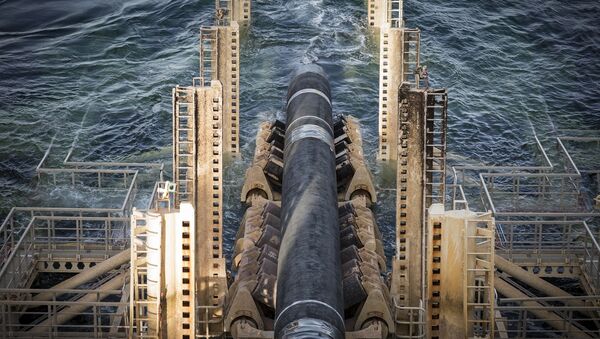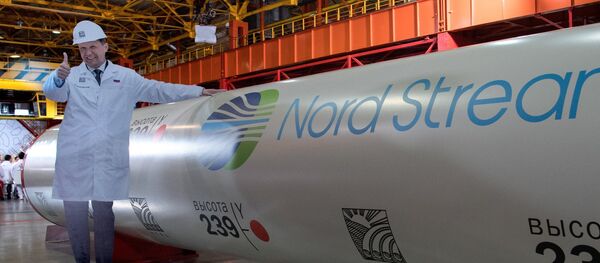"As a committed European, I personally treat this project as positive, just as the German government and many other countries in the European Union do. I think that together we will be able to implement this project," Kurtz said at a press conference with Rainer Seele, the head of the Austrian oil and gas company OMV.
The completion of the Nord Stream 2 gas pipeline construction and the start of its operation can be delayed until the second half of 2020 as Russia has so far failed to secure a construction permit from Denmark, Russian company Nord Stream 2 AG, which oversees the laying of the pipeline, said.
"[Construction] permits have been granted in Sweden, Germany, Finland and Russia. Onshore and offshore construction preparatory works have begun in 2018 in all four aforementioned countries… The pipeline system is planned to be completed and ready for gas transport within the second half of 2020," the summary of the company's application to Denmark, published by the Danish Energy Agency, said.
READ MORE: US Senators Seek New Sanctions on Nord Stream 2 Firms in New Rant — Report
The two previous applications submitted by the company suggested that the route should lie either south of Bornholm in Denmark's territorial waters or to the north-west of the island through the country's EEZ. The first application was filed back in 2017 and is still pending.
Under the Nord Stream 2 project, two pipelines will be laid at the bottom of the Baltic Sea to deliver around 55 billion cubic meters (almost 2 trillion cubic feet) of Russian gas directly to Germany and other European countries. The pipelines are set to cross the territorial waters and exclusive economic zones of Denmark, Finland, Germany, Russia and Sweden. Denmark is currently the only country that has not yet given its consent for construction.
According to Nord Stream 2 AG, more than half of the total length of the two lines have already been laid. Nord Stream 2 was initially expected to be put into operation by January 1, 2020.


